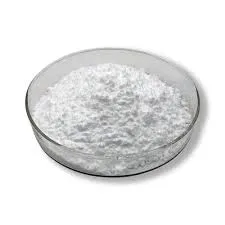
Okt . 22, 2024 10:49 Back to list
Exploring Applications and Benefits of Hydroxyethyl Cellulose in Various Industries
The Use of Hydroxyethyl Cellulose Versatile Applications in Various Industries
Hydroxyethyl cellulose (HEC) is a non-ionic, water-soluble polymer derived from cellulose. It is widely recognized for its thickening, binding, and film-forming properties, making it an essential ingredient in various applications across multiple industries. The unique characteristics of HEC, such as its ability to form viscous solutions, enhance product stability, and increase application efficiency, have contributed to its growing popularity.
One of the most significant applications of hydroxyethyl cellulose is in the cosmetic and personal care industry. It serves as a thickener and texture enhancer in shampoos, conditioners, lotions, and creams. HEC helps to improve the viscosity of formulations, ensuring that products maintain their desired consistency during storage and application. Additionally, HEC acts as a stabilizer, preventing the separation of ingredients and enhancing the overall performance of personal care products. Its gentle nature makes it suitable for sensitive skin formulations, providing moisturization without irritation.
The pharmaceutical industry also benefits substantially from the use of hydroxyethyl cellulose. HEC is used as an excipient in drug formulations, where it plays a pivotal role in controlling the release of active pharmaceutical ingredients (APIs). Due to its gel-forming ability and viscosity, HEC helps to regulate the dissolution rates of drugs, ensuring optimal absorption in the body. This property is crucial for formulating controlled-release medications, enhancing therapeutic efficacy, and minimizing side effects.
In the field of construction, hydroxyethyl cellulose is valued for its role as a thickening agent in cement and mortar. The incorporation of HEC into construction materials improves their workability and enhances adhesion, making it easier to apply. It also helps to retain moisture, which is essential for proper curing and durability of the final product. Moreover, HEC acts as a suspending agent, preventing the settling of particles in liquid formulations, thus ensuring a uniform application.
use of hydroxyethyl cellulose

Another notable application of hydroxyethyl cellulose is in the food industry. HEC serves as a food thickener and stabilizer, providing desirable textural properties to sauces, dressings, and other products. It can improve the mouthfeel and overall sensory experience of food products without adding excessive calories or affecting flavor. Furthermore, HEC is utilized in gluten-free formulations, as it helps mimic the binding properties of gluten, ensuring a satisfactory texture in baked goods.
Hydroxyethyl cellulose also finds diverse applications in the paint and coatings industry. It acts as a thickener and stabilizer in water-based paints, providing a smooth application and preventing the settling of pigments. Its use ensures uniformity in color and texture while improving the overall finish of coated surfaces. The eco-friendly nature of HEC aligns well with the growing demand for sustainable and biodegradable materials in the coatings sector.
Despite its many advantages, the use of hydroxyethyl cellulose is not without challenges. Factors such as the concentration of HEC, pH of the solution, and the presence of other ingredients can influence its performance. Therefore, thorough testing and formulation adjustments are necessary to achieve the desired viscosity and application characteristics.
In conclusion, hydroxyethyl cellulose is a multifunctional polymer that plays a critical role in various industries, including cosmetics, pharmaceuticals, construction, food, and coatings. Its unique properties, such as thickening, binding, and moisture-retaining capabilities, make it an invaluable ingredient in formulating effective and stable products. As industries continue to innovate and prioritize sustainability, the demand for hydroxyethyl cellulose is likely to increase, solidifying its status as a vital component in modern formulations. Whether enhancing personal care items or improving the performance of construction materials, HEC is set to remain a key player in diverse applications for years to come.
-
Unlocking the Benefits of HPMC Products: A Gateway to Versatile Applications
NewsAug.07,2025
-
Tile Bonding Cellulose: The Key to Superior Adhesion and Durability
NewsAug.07,2025
-
Hydroxypropyl Methylcellulose Powder: The Versatile Component in Modern Pharmaceuticals
NewsAug.07,2025
-
Hydroxyethyl Cellulose: The Versatile Solution for Various Industries
NewsAug.07,2025
-
Hydroxyethyl Cellulose (HEC): The Versatile Polymer for Various Applications
NewsAug.07,2025
-
The Ultimate Guide to Mortar Bonding Agent
NewsAug.06,2025







